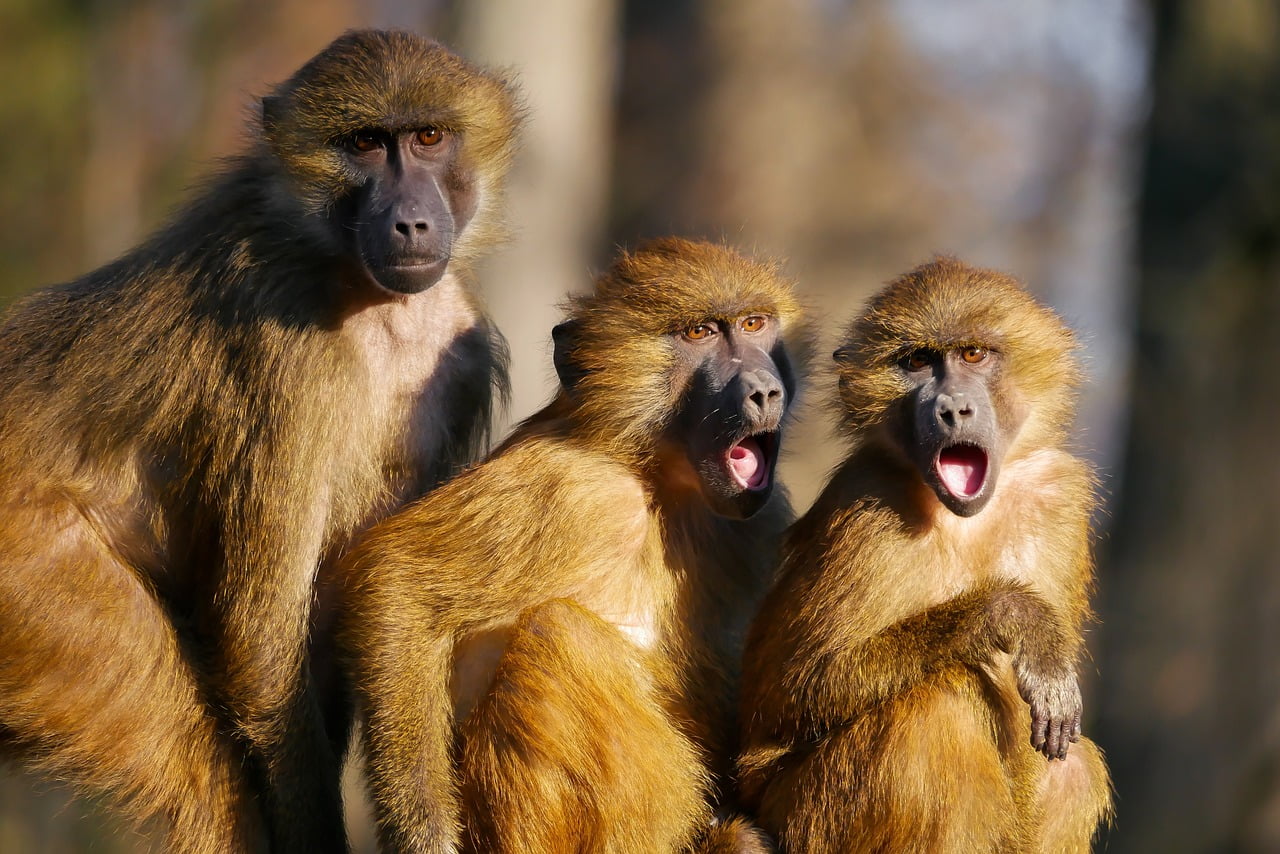
There are also personality variables that mediate our responses to chronic stress. Some personalities just naturally seem to deal with stress better than others. For years Robert Sapolsky has studied baboons in the wilds of Kenya because these animals have a metabolic stress response that is very similar to that found in humans. He has identified stress-mitigating baboon personality traits that correlate with the lowest blood levels of cortisol.
Baboons who can differentiate between serious and trivial threats and between immediate and potential danger have lower cortisol levels. These animals seemed to have the ability to establish priorities, and not worry too much about potential threats in the future.
When danger is looming, however, baboons who take control of the situation and start the inevitable fight have lower cortisol levels. But that’s only part of it. Apparent-ly, most baboons don’t know when to stop fighting, and do not naturally know when they have won a battle, so they keep on fighting. Some baboons, however, seem to know when it’s over and know when to stop. Those that do have lower levels of stress hormone.
Baboons need outlets for their frustrations, too. Those that have outlets seem to fare better although, unfortu-nately, it appears that a common outlet is beating up on a smaller baboon. Finally, baboons who have friends have lower cortisol levels. Social isolation appears to be as destructive in baboons as it is in humans.
Similar personality traits help humans deal with stress as well. People who can make decisions, establish priorities and let go of unimportant things, who know when to stop and how to unwind, who have outlets for frustration and a good support system, all seems to deal with stress more successfully than people who don’t. n





